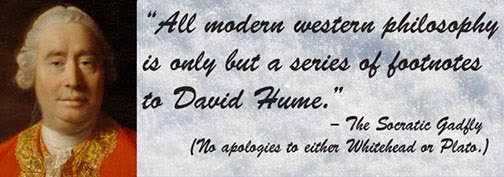Van Cliburn's talent alone might have earned him a place among the 20th-century giants of his instrument, alongside classical pianists like Arthur Rubinstein and Vladimir Horowitz. But after a magical Moscow spring in 1958, Mr. Cliburn's fame eclipsed even those musical contemporaries, rivaling that of another young superstar of his time, Elvis Presley.It was an iconic moment. Not just in the Cold War, but in American classical music, demonstrating that American home-grown talent in the highly competitive world of the piano did exist.
Mr. Cliburn was "The Texan Who Conquered Russia," according to a Time magazine cover. At the height of the Cold War, the lanky 23-year-old from East Texas traveled to Moscow and won the first Tchaikovsky International Competition, an event created to showcase Soviet cultural superiority. Mr. Cliburn's unlikely triumph was thus said to bring a thaw in tensions between the rival superpowers and created a mythic parable about the power of art to unite mankind.
Per the New York Times obit, he wasn't alone.
At the time, America had produced an exceptional generation of pianists besides Mr. Cliburn who were all in promising stages of their own careers, among them Leon Fleisher, Byron Janis, Gary Graffman and Eugene Istomin.Like Rachmaninoff, one of the Russians he played in Moscow, he could span 12 white notes with his hands, allowing his technique, described like this:
He developed a commanding technique, cultivated an exceptionally warm tone and manifested solid musical instincts. At its best, his playing had a surging Romantic fervor, but leavened by an unsentimental restraint that seemed peculiarly American.That said, I also agree with this portion of the Times' assessment:
But if the Tchaikovsky competition represented Mr. Cliburn’s breakthrough, it also turned out to be his undoing. Relying inordinately on his keen musical instincts, he was not an especially probing artist, and his growth was stalled by his early success. Audiences everywhere wanted to hear him in his prizewinning pieces, the Tchaikovsky First Concerto and the Rachmaninoff Third.Van Cliburn himself said he felt like he "had been at this thing for 20 years already" by 1958, and that in part explains why he didn't develop further.
His subsequent explorations of wider repertory grew increasingly insecure. During the 1960s he played less and less. By 1978 he had retired from the concert stage; he returned in 1989, but performed rarely. Ultimately, his promise and potential were never fulfilled.
It's a shame. Prokofiev and other moderns could have well stood the attention of a more mature Van Cliburn.
However, he did, through starting the Van Cliburn Competition, give another gift to American classical music -- its further development. For that alone, we should all be very grateful.
Scott Cantrell at the Dallas Morning News, an email acquaintance of mine from my days in Dallas describes the start of that, as well as his life in Fort Worth:
He already had many friends in Fort Worth, where in 1962 the quadrennial Van Cliburn International Piano Competition was inaugurated in his honor. He served as an artistic adviser to the competition, to be held again in May and June 2013, and he took a keen interest in its winners’ careers.That said, Cantrell reflects what the Times said about his later career:
With the aura of an old-school Southern gentleman, with a velvety baritone voice, Mr. Cliburn became Fort Worth royalty. He was as warmly gracious to the youngest piano student as to the city’s movers and shakers.
“He was a true, true gentleman,” (Richard Rodzinski, former executive director of the Van Cliburn Foundation) said, “genuinely modest, self effacing, always surprised at people remembering him, appreciating him. Generosity, modesty, gentleness, incredibly loyalty as a friend, great, great kindness — these were the attributes that made people so terribly fond [of] him.”
In 1989, Mr. Cliburn started to revive his concert career, and he performed that September at the opening of Dallas’ Meyerson Symphony Center. He again appeared with major orchestras and continued to draw rapturous audiences, but the old magic appeared only intermittently. The rich tone of his earlier years had hardened, his memory and technique had become less reliable and his interpretations had become fussy, mannered. A couple of onstage fainting spells made headlines.No matter. He continued to grace the Cliburn Competition with his presence, his self.
“Something died there,” Bryce Morrison, a British critic specializing in piano performance, said in a 2004 interview. “I do think he was a victim of his own success, a victim of a commercial thing that can make you and destroy you at the same time. It wasn’t a very long career before things started to crack.”

No comments:
Post a Comment